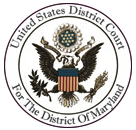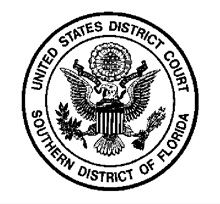Moss v. Bush was a lawsuit filed by 37 Ohio voters challenging Ohio's certified electoral college votes in the 2004 U.S. presidential election. It was filed on 13 December 2004, and dismissed at the plaintiffs' request following the acceptance of Ohio's votes by the U.S. Congress and Senate on January 6, 2005. The suit was headed by Cliff Arnebeck of the Alliance for Democracy.
The Oklahoma Libertarian Party is the recognized state affiliate of the Libertarian Party in Oklahoma. It has been active in state politics since the 1970s, but due to what critics characterize as Oklahoma's restrictive ballot access requirements the party has been an officially recognized party during only portions of the last twenty-five years. In 2016, The Oklahoma Libertarian Party regained its ballot access. Through running strong candidates in targeted campaigns, the state party has maintained, and currently has secured, ballot access through 2024 at a minimum.
Crawford v. Marion County Election Board, 553 U.S. 181 (2008), was a United States Supreme Court case in which the Court held that an Indiana law requiring voters to provide photographic identification did not violate the United States Constitution.

Atban v. Blackwater, 611 F. Supp. 2d 1, was a lawsuit brought by the victims and families affected by the September 16, 2007 Blackwater Baghdad shootings against Blackwater Worldwide, a private military contractor since renamed Academi. The case was consolidated with Estate of Albazzaz, et al. v. Blackwater Lodge and Training Center, Inc. et al., and the consolidated case was ultimately settled confidentially out of court.

The Wisconsin circuit courts are the general trial courts in the state of Wisconsin. There are currently 69 circuits in the state, divided into 10 judicial administrative districts. Circuit court judges hear and decide both civil and criminal cases. Each of the 249 circuit court judges are elected and serve six-year terms.
Williams v. Rhodes, 393 U.S. 23 (1968), was a case before the United States Supreme Court.

Proposition 14 is a California ballot proposition that appeared on the ballot during the June 2010 state elections. It was a constitutional amendment that effectively transformed California's non-Presidential elections from first-past-the-post to a nonpartisan blanket primary. The proposition was legislatively referred to voters by the State Legislature and approved by 54% of the voters. It consolidated all primary elections for a particular office into an election with one ballot that would be identical to all voters, regardless of their party preferences. The two candidates with the most votes in the primary election would then be the only candidates who would run in the general election, regardless of their party affiliation.
Numerous lawsuits and ballot challenges, based on conspiracy theories related to Barack Obama's eligibility for the United States presidency, were filed following his first election in 2008 and over the course of his two terms as president. These actions sought to have Obama disqualified from running for, or being confirmed for, the Presidency of the United States, to declare his actions in office to be null and void, or to compel him to release additional documentation related to his U.S. citizenship.

Doe ex. rel. Tarlow v. District of Columbia, 489 F.3d 376, is a unanimous decision of the United States Court of Appeals for the District of Columbia Circuit, written by Circuit Judge Brett Kavanaugh, in which the Court upheld a 2003 District of Columbia statute that stated the conditions for authorizing a non-emergency surgical procedure on a mentally incompetent person. This case developed out of an appeal to a district court decision that was brought on behalf of a mentally incompetent patient who was subjected to an abortion without her consent and another patient who was subjected to an eye surgery without the patient's consent. Under the appellate court's interpretation of the statute, a court located in the District of Columbia must apply the "best interest of the patient" standard to a person who was never competent, and the court must apply the "known wishes of the patient" standard to a person who was once competent. The appellate decision was remanded to the District Court.

ACLU v. Trump, No. 1:17-cv-01351, is a case pending before the United States District Court for the District of Columbia. The plaintiffs, the watchdog group American Civil Liberties Union (ACLU), alleges that the defendants, President Donald Trump and the Vice President Michael Pence, are in violation of the Federal Advisory Committee Act by establishing the Presidential Advisory Commission on Election Integrity for the purpose of supporting the President’s "claim that he won the popular vote in the 2016 election—once millions of supposedly illegal votes are subtracted from the count."

Stone v. Trump (1:17-cv-02459-MJG) is a lawsuit filed on August 28, 2017 in the United States District Court for the District of Maryland. The lawsuit alleges that President Donald Trump's ban on transgender personnel joining the U.S. military violates their equal protection and due process rights. The American Civil Liberties Union (ACLU) of Maryland filed the suit on behalf of Petty Officer First Class Brock Stone, an 11-year veteran of the U.S. Navy, and several other transgender service members. In addition to President Trump, the suit names as defendants the Secretaries of Defense, the Army, the Navy, and the Air Force.

Joyner v. Presidential Advisory Commission on Election Integrity is a federal case brought before the United States District Court for the Southern District of Florida. The plaintiffs, including Arthenia Joyner, the American Civil Liberties Union of Florida, and others, sought to enjoin the State of Florida from transferring voter records to the Presidential Advisory Commission on Election Integrity.
After the 2020 United States presidential election, the campaign for incumbent President Donald Trump and others filed and lost at least 63 lawsuits contesting election processes, vote counting, and the vote certification process in multiple states, including Arizona, Georgia, Michigan, Nevada, Pennsylvania, and Wisconsin. Among the judges who dismissed the lawsuits were some appointed by Trump himself.
Before Election Day of the 2020 United States presidential election, lawsuits related to the voting process were filed in various states. Many of these lawsuits were related to measures taken by state legislatures and election officials in response to the COVID-19 pandemic.
Texas v. Pennsylvania, 592 U.S. ___ (2020), was a lawsuit filed at the United States Supreme Court contesting the administration of the 2020 presidential election in certain states, in which Joe Biden defeated incumbent Donald Trump.
In direct response to Pennsylvania Democratic Party v. Boockvar and the 2020 United States presidential election in Pennsylvania, the Donald Trump 2020 presidential campaign launched numerous lawsuits contesting the purview of the Pennsylvania Supreme Court and the election processes of Pennsylvania. All of these have either been dismissed or dropped. The last two remaining cases were dismissed without comment by the Supreme Court on February 22, 2021. On April 19, 2021, more than five months after the November 3, 2020 election, the Supreme Court declined to hear the outstanding case brought by former Republican congressional candidate Jim Bognet, dismissing it without comment.
In direct response to election changes related to the COVID-19 pandemic, 2020 United States presidential election in Arizona, and "Sharpiegate"; the Donald Trump 2020 presidential campaign launched numerous lawsuits contesting the election processes of Arizona. All of these have either been dismissed or dropped.
The Donald Trump 2020 presidential campaign launched numerous lawsuits contesting the election processes of Nevada. Many of the processes contested were created due to the COVID-19 pandemic. All of these have either been dismissed or dropped.
In direct response to election changes related to the COVID-19 pandemic and 2020 United States presidential election in Georgia; the Donald Trump 2020 presidential campaign launched numerous lawsuits contesting the election processes of Georgia. Almost all of these have either been dismissed or dropped.
In direct response to election changes related to the COVID-19 pandemic and 2020 United States presidential election in Wisconsin; the Donald Trump 2020 presidential campaign launched numerous lawsuits contesting the election processes of Wisconsin. All of these have either been dismissed or dropped.






